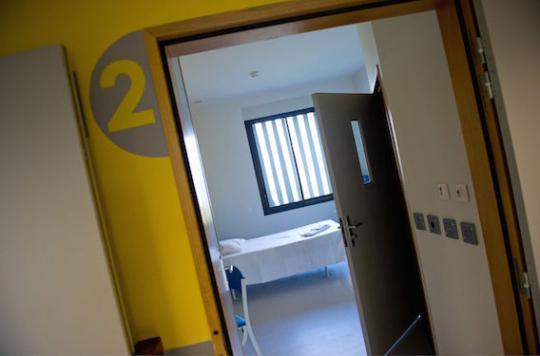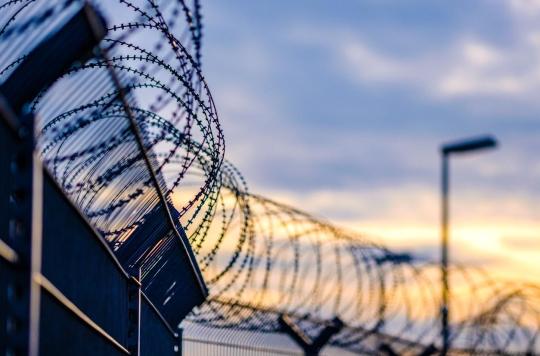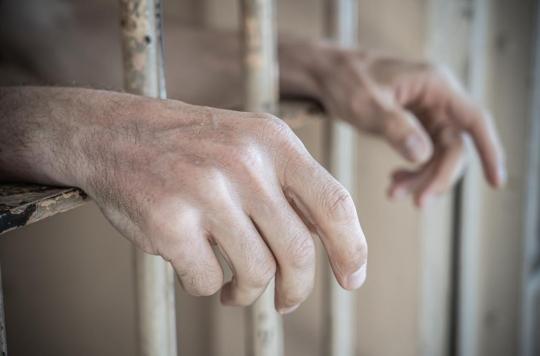An NGO points out the many shortcomings in France in the care of prisoners with psychiatric disorders. She denounces in particular the lack of health professionals.

The expression “double penalty” has rarely been so aptly named. This is also the title of a report from the NGO Human Rights Watch which points out the poor conditions of care for people with psychiatric disorders in prison. And the lack of action of establishments in France.
To compile this report, the NGO met 50 inmates, prison staff and health professionals in eight prisons, as well as government officials. The results that emerge from these interviews are far from brilliant. In fact, the detainees are seven times more end to their days than the rest of the French population. In 2015 alone, 113 suicides were counted by the French authorities.
The absence of specialists
Prisoners suffering from psychiatric disorders do not benefit from appropriate care. All prisons have a medical unit offering physical and psychological care. But of the 188 French establishments, only 26 have a regional medico-psychological service (SMPR). They represent a total of 380 beds, accessible only during the day. Added to this is the lack of professionals specializing in mental health. Their rare presence in places of deprivation of liberty makes it difficult to make an appointment. The meetings are therefore often limited to the prescription of drugs, deplores Human Rights Watch.
When patients’ health deteriorates, they are transferred – most of the time against their will – to psychiatric establishments, or placed in solitary confinement. “I prefer to be in a cell 1,000 times rather than in an isolation room in the hospital. To have my arms and feet tied up as if I were an animal, ”testifies an inmate named Sarah in the report.
Women at high risk
Return to prison is often accompanied by a recurrence of unrest, due to the lack of support and rehabilitation. It is the start of a vicious circle. The strict rules of cell life, limited contact with loved ones, overcrowding and bullying make the situation even worse. “This lack of treatment is equivalent to an additional penalty for detainees who need this care”, slice Izza Leghtas, co-author of the report.
These problems inherent in detention were pointed out in 2015 by Adeline Hazan, General Controller of places of deprivation of liberties. “However, successive French governments have failed to resolve them,” the report stresses. Women are particularly at risk. Indeed, their movements are more often limited than those of men in order to avoid contact with them.
Guarantee respect for dignity
France did try to improve its record in August 2014. A law provides for the suspension of a prison sentence if the state of health of the detainee is not compatible with the detention. “But finding structures to provide appropriate assistance to people with psychiatric disorders who have also been convicted of criminal offenses in the community after their release can be complicated,” Human Rights Watch said.
The NGO therefore issues several recommendations to France. She firstly recalls that the country is committed to guaranteeing conditions of imprisonment “compatible with respect for human dignity”, to offer a maximum level of health to people with disabilities and not to be at the origin. discrimination based on sex.
The organization calls on France to launch an independent investigation into the mental health of detainees, in order to obtain precise figures on the number of people affected, to offer them living conditions more appropriate to their disorder and to fight against the shortage. specialist professionals in prison.
Prison officers in pain
Members of the prison service are also subject to mental health problems. According to a study published this Tuesday in the Weekly Epidemiological Bulletin (BEH) of the Institute for Health Watch (InVS), there are 21% more suicides compared to the general population. Supervisors and technical assistants are particularly at risk, especially if they are male.
Among the explanations put forward by the authors, the psychosocial constraints inherent in the professional environment. They underline the high level of violence, stress and insecurity to which these assets are exposed, but also the lack of recognition and the low numbers. But surprisingly, officers who have worked in overcrowded prisons are the least likely to end their lives. Access to a firearm also facilitates the act.
.















